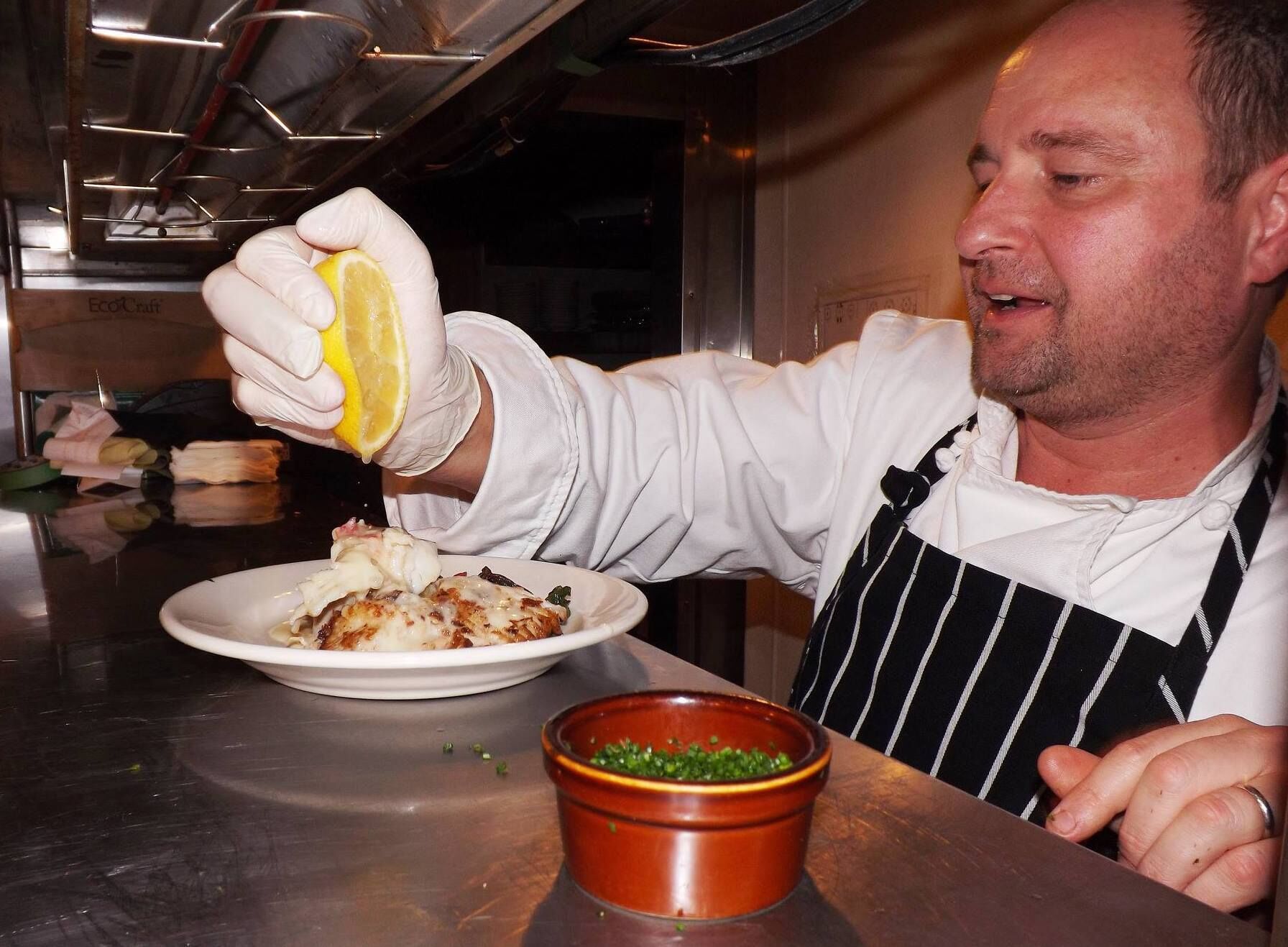"We've Really Created A Monster" More Island Restaurants Apply For Extended Offseason Closures
Jason Graziadei •

Where will you eat out this winter on Nantucket? The choices might be more limited than you think.
Town licensing administrator Amy Baxter reported to the Select Board earlier this month that 14 restaurants licensed as year-round establishments had submitted requests for so-called “extended closures” during the 2023-24 offseason. And, she said, more requests are expected to be made in the coming weeks.
Any Nantucket restaurant or bar with a year-round (known as an “annual”) liquor license is required to report an extended closure of two weeks or more to the town, and those requests must be approved by the Select Board. Such closures have been increasing, Baxter said, as the restaurant industry is still being impacted by the fallout from the COVID-19 pandemic.
Despite a year-round population that continues to grow - with recent estimates at more than 17,000 island residents - Nantucket’s restaurants still find it challenging if not cost-prohibitive to stay open through the slowest months of the year during the offseason.
The discussion during the recent licensing hearing reflected that reality, as did comments from restaurateurs who spoke with the Current.
“We used to be open year-round, right up until COVID,” said chef Mike Getter, the owner of Dune restaurant on Broad Street. “And when we were, it was at a significant financial loss. It was never profitable. But we did it for the community and built goodwill. I wanted to be open year-round. People on Nantucket, when it is a little tight, not many people go out to eat that often and it’s pretty slow. With regard to the decision to stay open or not, last year we closed and it was the first time we were closed January, February, and March, then reopening in mid-April. Staffing in the winter is extremely difficult, and it’s hard to find people to work and business-wise it’s very slow. The staffing has definitely changed post-COVID. We would just grab winter people off from their summer jobs and it was a great crew. But the industry has changed so much, there are so few cooks around that want to work. It really comes down to the fact it’s a financial decision.”

Baxter said during the recent licensing hearing she is exploring ways to incentivize restaurants to stay open year-round - or at the very least keep their annual liquor license and do an extended closure rather than formally convert to a seasonal establishment - and provide greater flexibility for those businesses.
“Obviously this is something we’ve struggled with for years because they’ve had more and more difficulties staying open,” Baxter said at the hearing. “I’ve spoken to legal about the extended closures to see if there is a way to make seasonals a little tighter and allow people more flexibility. We currently have 14 extended closure requests. Of the 57 annuals (annual liquor license holders) about 10 of them have asked to change to seasonal. We’ve asked them to hold off to see if there’s any other solutions to help stop everyone from being seasonal and not having anything open January through March.”
Baxter gave the Select Board an anecdote to illustrate the point she was making: “One (restaurant) emailed us that they were planning to be open all winter. But now they can’t and will be closed for four months. It’s compounding every year.”

Even the restaurants that would like to stay open year-round, Baxter said, are facing both staffing and financial challenges. “The financial numbers don’t work to stay open,” she added.
The town’s licensing fees and fines are already structured in a way that, at least symbolically, are intended to incentivize restaurants to stay open year-round. The fee for an annual, all-alcohol liquor license is set at $3,250. The all-alcohol liquor license fee for a seasonal restaurant costs more, at $3,900. Back in 2019, the Select Board went even further and established a “closure fee” to penalize restaurants with year-round licenses that shut down for more than 60 days. That fine was set at $3,900, but as it was established just months before the COVID-19 pandemic, it has never been levied against any island restaurant.
Baxter confirmed the following restaurants, bars and other establishments with annual liquor licenses have formally requested permission from the Select Board for an extended closure during the 2023-24 offseason:
- Bartlett’s Farm
- Chicken Box (Feb. 12 to March 1)
- Dune
- Gaslight
- Greydon House / Via Mare
- Lola 41
- Nantucket Hotel / The Breeze
- Nantucket Tap Room
- Nautilus
- Or The Whale
- Pi Pizzeria
- Seagrille
- Town/Queequegs
Even year-round stalwarts like Faregrounds Restaurant & Pudley’s Pub appear to be feeling the pressures and challenges post-COVID. Just last month, Faregrounds submitted - and later withdrew - a request to change from an annual to a seasonal all-alcohol beverages restaurant license. Co-owner Kim Puder declined to comment on the request.

During the licensing hearing earlier this month, Select Board member Matt Fee emphasized that the “peak” season was more intense than in years past, but the shoulder seasons and offseason were slower, exacerbating the staffing challenges.
“The extended closure thing, that’s staffing, housing, and a lack of business,” Select Board member Matt Fee said during the licensing hearing. “They’re not busy enough, and there’s been a changing makeup of the year-round workforce. It’s not the English and Irish that used to go out every night and the Americans that were here. It’s a whole demographic shift. A lot of the places coming to you (for extended closures) were not as busy as they were. What I’m seeing is the busy times are busier, and the shoulders (seasons) and times like now are just dead. No one’s going out at all. We’ve had a real shift. We’ve built such a supply for peak. We’re going into a weird time. It’s so busy at peak, people can’t keep up with it. And then at the shoulders and winter, there’s no business. We’ve really created a monster for this industry to survive based on what’s happening on the rest of the island. It’s very, very difficult.”
Evan Marley, co-owner of Pi Pizzeria, agreed with Fee’s assessment that much of the additional workforce living on Nantucket in recent years is simply not eating out. So while the year-round population has grown, that did not translate into significantly more new customers for year-round restaurants.

“This island has a fair share of illegal kitchens and some of the year-round workforce, they cook meals for the landscaping crews and the construction crews,” Marley said. “They’re going to Stop & Shop and buying huge bags of rice and cooking lunches and having everyone chip in $20 bucks. And that’s a big thing on the island.”
Pi Pizzeria will close a little earlier this year - at the end of December instead of the usual Jan. 15 date - and Marley plans to reopen as he usually does around “Pi Day” on March 14th.
“There’s not as many people going out anymore,” Marley said. “It stinks. You feel like you’re running on a treadmill but it’s going backwards. You look at the money you made in the summer and you’re giving it away this time of year because there’s not enough business. My employees get paid, and I’m providing a service to the community and that’s great. But I don’t have a trust fund and this is a business at the end of the day.”